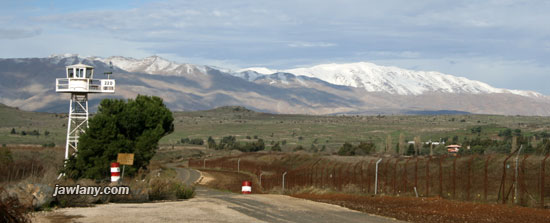
Elections in Syrian villages in occupied Golan
Earlier this year, the Israeli authorities announced the decision to hold local elections on 3 October 2018 in the Syrian villages in the occupied Golan. These elections would be the first of their kind since the occupation just over fifty years ago. However, given that only those holding Israeli citizenship can be elected and that they are being used to further the aims of the Israeli Government, the elections are clearly undemocratic and violate international law.
Following the 1967 Arab-Israeli war and the occupation of the Syrian Golan, the Israeli Government handed all necessary power to its military commanders to control and administer the occupied territory. These military commanders created local councils in the mid 1970s and appointed mayors to govern the remaining Syrian villages. On 14 December 1981, Israel ended military rule with the enactment of the ‘Golan Heights Law’, which purported to annex the occupied territory to the state of Israel. On 17 December 1981, the UN Security Council categorically rejected Israel’s passage of the ‘Golan heights Law’ in UN resolution 497, stating that ‘the Israeli decision to impose its laws, jurisdiction and administration in the Occupied Syrian Golan Heights is null and void and without international legal effect’. Since the annexation, the Israeli Interior Minister has appointed the mayor of local councils in the Syrian villages in the occupied Golan.
The overwhelming majority of the native Syrian population of the occupied Golan view these local elections as inherently undemocratic. Under Israeli law, eligible candidates for local elections must hold Israeli citizenship. As the majority of the Syrian population refuse to accept Israeli citizenship (and are consequently forced to carry IDs indicating permanent residency), the pool of potential candidates for local elections has been limited to a small group of people who hold Israeli nationality. In short, Syrians can elect an official but cannot themselves be elected. It is also worth noting that the permanent residency ID categorises Syrians’ nationality as ‘undefined’, meaning that they cannot vote in Israeli national elections and making it very difficult for them to travel abroad.
Not only will these local elections be undemocratic, they will also violate international law. Article 43 of the Hague Convention 1907 (respecting the Laws and Customs of War on Land) states that an occupying force must ‘take all the measures in his power to restore, and ensure, as far as possible, public order and safety, while respecting, unless absolutely prevented, the laws in force in the country.’
By holding these elections, Israel seeks to impose its laws on the Syrian population, thereby further eroding its Syrian identity. The local elections to be held in October 2018 will solely serve Israeli Government interests by preventing the election of individuals who seek to protect the rights of the native Syrian population. Finally, the holding of these elections demonstrates Israel’s desire to take advantage of the current conflict in Syria to strengthen its grip on the occupied Golan and assert its sovereignty over the region.
ENDS
Al-Marsad is an independent, not-for-profit, legal human rights organisation – it is the only human rights organisation operating in the occupied Syrian Golan. For additional information, please contact marsad@golan-marsad.org or researcher@golan-marsad.org.
Releated Posts





